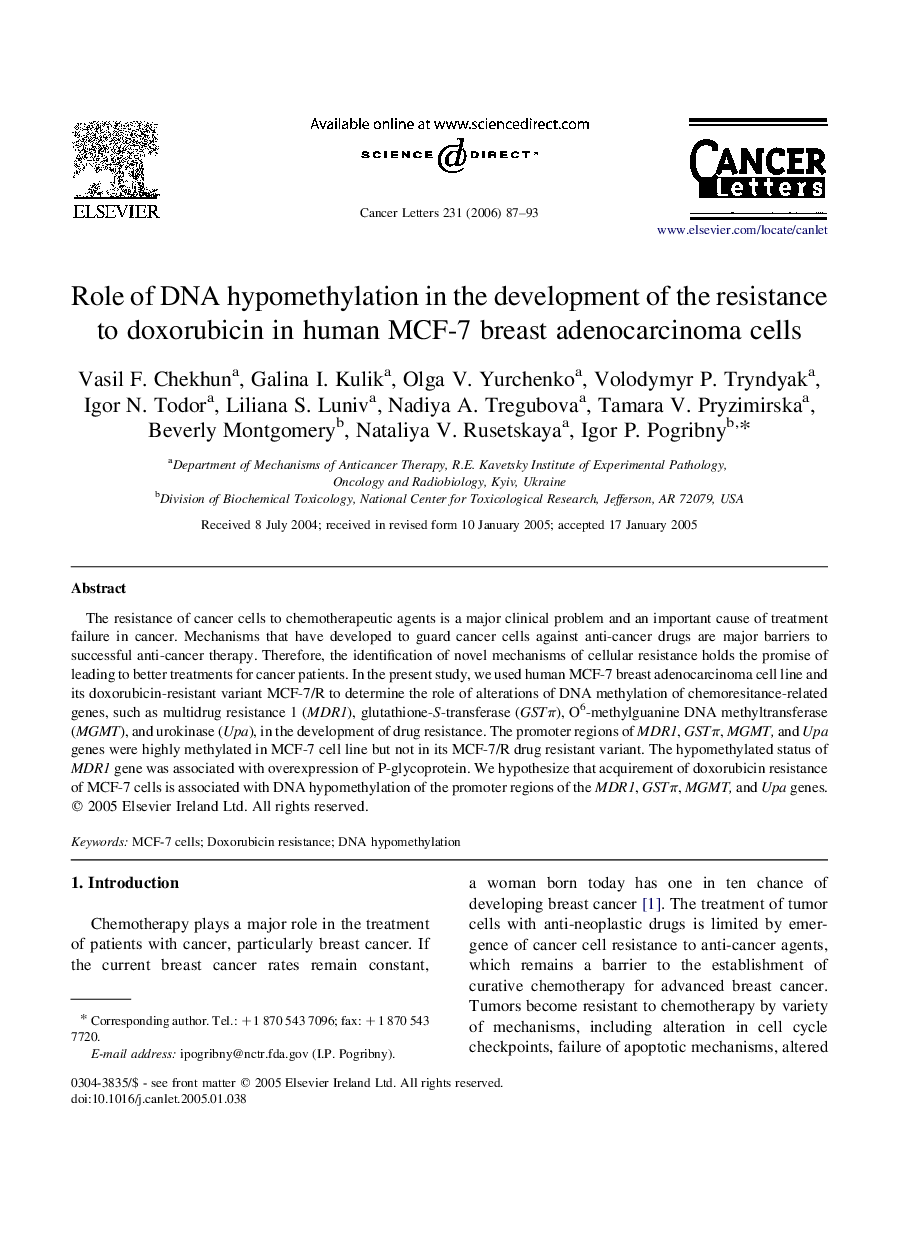| Article ID | Journal | Published Year | Pages | File Type |
|---|---|---|---|---|
| 2115937 | Cancer Letters | 2006 | 7 Pages |
The resistance of cancer cells to chemotherapeutic agents is a major clinical problem and an important cause of treatment failure in cancer. Mechanisms that have developed to guard cancer cells against anti-cancer drugs are major barriers to successful anti-cancer therapy. Therefore, the identification of novel mechanisms of cellular resistance holds the promise of leading to better treatments for cancer patients. In the present study, we used human MCF-7 breast adenocarcinoma cell line and its doxorubicin-resistant variant MCF-7/R to determine the role of alterations of DNA methylation of chemoresitance-related genes, such as multidrug resistance 1 (MDR1), glutathione-S-transferase (GSTπ), O6-methylguanine DNA methyltransferase (MGMT), and urokinase (Upa), in the development of drug resistance. The promoter regions of MDR1, GSTπ, MGMT, and Upa genes were highly methylated in MCF-7 cell line but not in its MCF-7/R drug resistant variant. The hypomethylated status of MDR1 gene was associated with overexpression of P-glycoprotein. We hypothesize that acquirement of doxorubicin resistance of MCF-7 cells is associated with DNA hypomethylation of the promoter regions of the MDR1, GSTπ, MGMT, and Upa genes.
